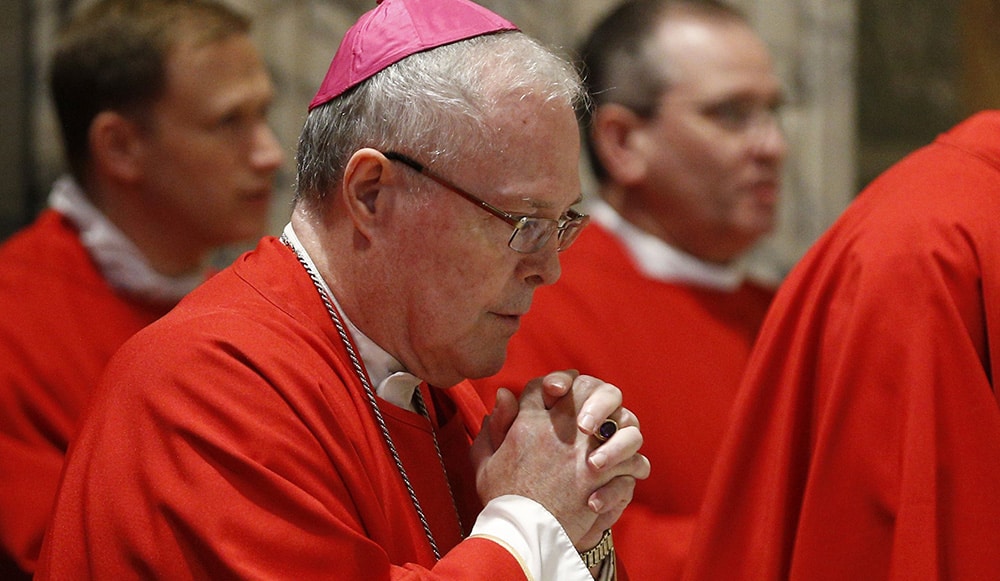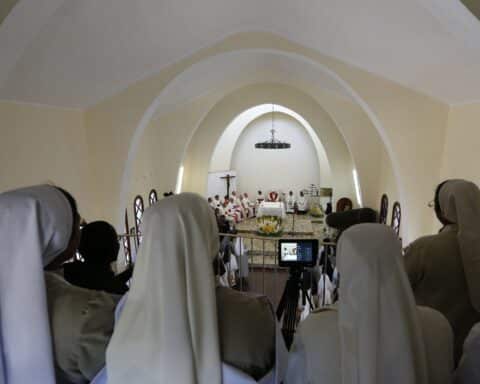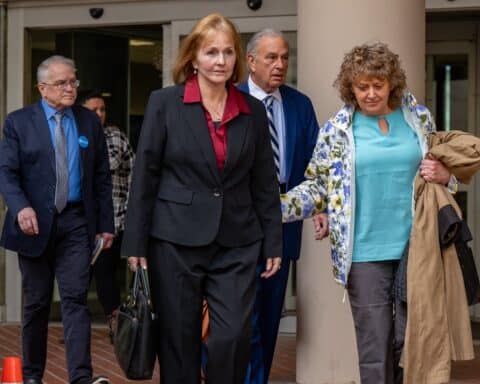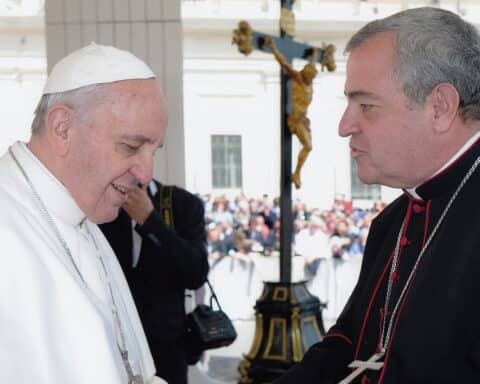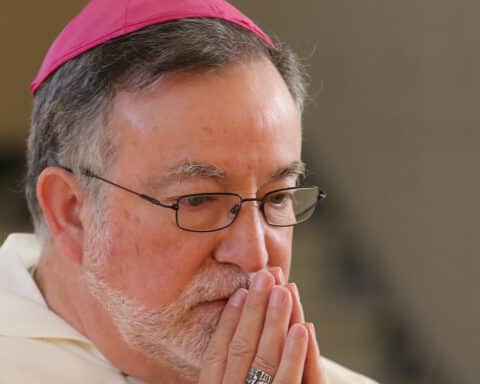At the request of Pope Francis, Bishop Michael Hoeppner of Crookston, Minnesota, resigned April 13 after an investigation into whether or not Bishop Hoeppner had carried out “acts or omissions intended to interfere with or avoid civil or canonical investigations of clerical sexual misconduct.”
The investigation that led to his resignation stemmed from reports that the bishop “had at times failed to observe applicable norms when presented with allegations of sexual abuse involving clergy of the Diocese of Crookston,” the diocese stated on the day of Bishop Hoeppner’s resignation. To put it in layman’s terms: The bishop was accused of not reporting abuse to Church and civil authorities after it had been reported to him — and even worse, he was said to have tried to coerce a victim into retracting his allegation of abuse (which had been made against a popular priest of the diocese).
The investigation and resignation were among the first fruits of the new canonical standards decreed by Pope Francis just shy of two years ago — on May 7, 2019 — via the motu proprio “Vos Estis Lux Mundi,“ which established a universal baseline of procedural norms for the reporting of clergy sexual abuse and related cover-ups. The norms went into effect June 1 of the same year for a three-year “ad experimentum” phase. On Sept. 10, 2019, Archbishop Bernard A. Hebda of St. Paul and Minneapolis, whose jurisdiction as metropolitan includes the Diocese of Crookston, announced that the new norms were going to be put to the test for the first time in the world, and the investigation of Bishop Hoeppner began.
As his resignation was the first requested by Pope Francis as a result of a “Vos estis” investigation, Bishop Hoeppner’s name will forever be identified with the sordid history of clergy sexual abuse and cover-up in this country. So it was more than a little surprising that in his final public appearance, Bishop Hoeppner chose to come across as, well, more than a little blasé.
Speaking at the start of a farewell Mass that had the strange feel of being in his honor, Bishop Hoeppner said he was presiding over “a Mass of Thanksgiving for the blessings that Almighty God has bestowed upon us, and myself especially, these past 13 and a half years.”
“It’s been a real joy and a treat, and we thank Almighty God for it this morning,” he said. During the homily, Bishop Hoeppner rushed through a canned apology, gave a perfunctory nod to his replacement, temporary apostolic administrator Bishop Richard Pates, and then took his time reflecting on what he had most enjoyed about his tenure in northwest Minnesota, which included himself teaching, himself celebrating the sacraments, and himself providing good governance and direction via a diocesan synod. He noted, too, that “the diocese is financially very healthy.” He also gave a report on his own future, which included getting his “knees fixed” and moving somewhere warmer to escape the cold Minnesota climate. Video footage is available on YouTube.
We do not want to be without charity here. No doubt this time is very difficult for Bishop Hoeppner. He is undergoing an unplanned transition; he is likely humiliated and anxious. No one likes to be fired. It’s unpleasant business all around.
But the phrase “unpleasant business” only scratches the surface of the damage done by clergy abuse and related negligence, coercion and cover-up — of which Bishop Hoeppner has been found guilty.
If the bishop had to preside over one final Mass after tendering his resignation, why not take the opportunity to express true humility in wrongdoing, or to sincerely apologize to those he had harmed, or to express solidarity with victims of sexual abuse and their defenders, or to pledge to learn and grow from the experience? Instead, all he expressed was a litany of the self.
The first test case within the “Vos Estis” experiment is now finished. An investigation was conducted, and a resignation requested and received. It was, as Ron Vasek, the man who claimed he was a victim of coercion on the part of Bishop Hoeppner, said in an interview, “a victory for truth.” Yet while “Vos Estis” might help uncover the truth and respond to injustice, it can’t mandate repentance — as Bishop Hoeppner’s farewell Mass most disappointingly makes all too clear.
Our Sunday Visitor Editorial Board: Gretchen R. Crowe, Scott P. Richert, Scott Warden, York Young

